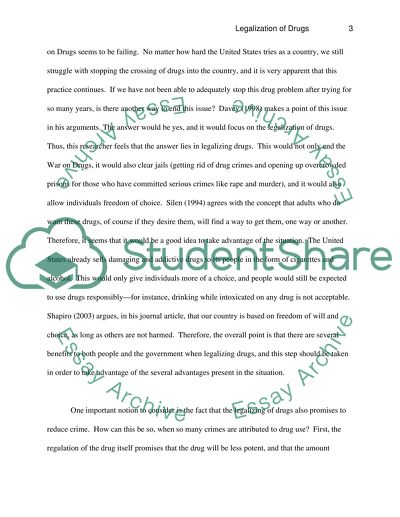Cite this document
(“Legalization of drugs Term Paper Example | Topics and Well Written Essays - 2250 words”, n.d.)
Retrieved from https://studentshare.org/miscellaneous/1513561-legalization-of-drugs-term-paper
Retrieved from https://studentshare.org/miscellaneous/1513561-legalization-of-drugs-term-paper
(Legalization of Drugs Term Paper Example | Topics and Well Written Essays - 2250 Words)
https://studentshare.org/miscellaneous/1513561-legalization-of-drugs-term-paper.
https://studentshare.org/miscellaneous/1513561-legalization-of-drugs-term-paper.
“Legalization of Drugs Term Paper Example | Topics and Well Written Essays - 2250 Words”, n.d. https://studentshare.org/miscellaneous/1513561-legalization-of-drugs-term-paper.


